-
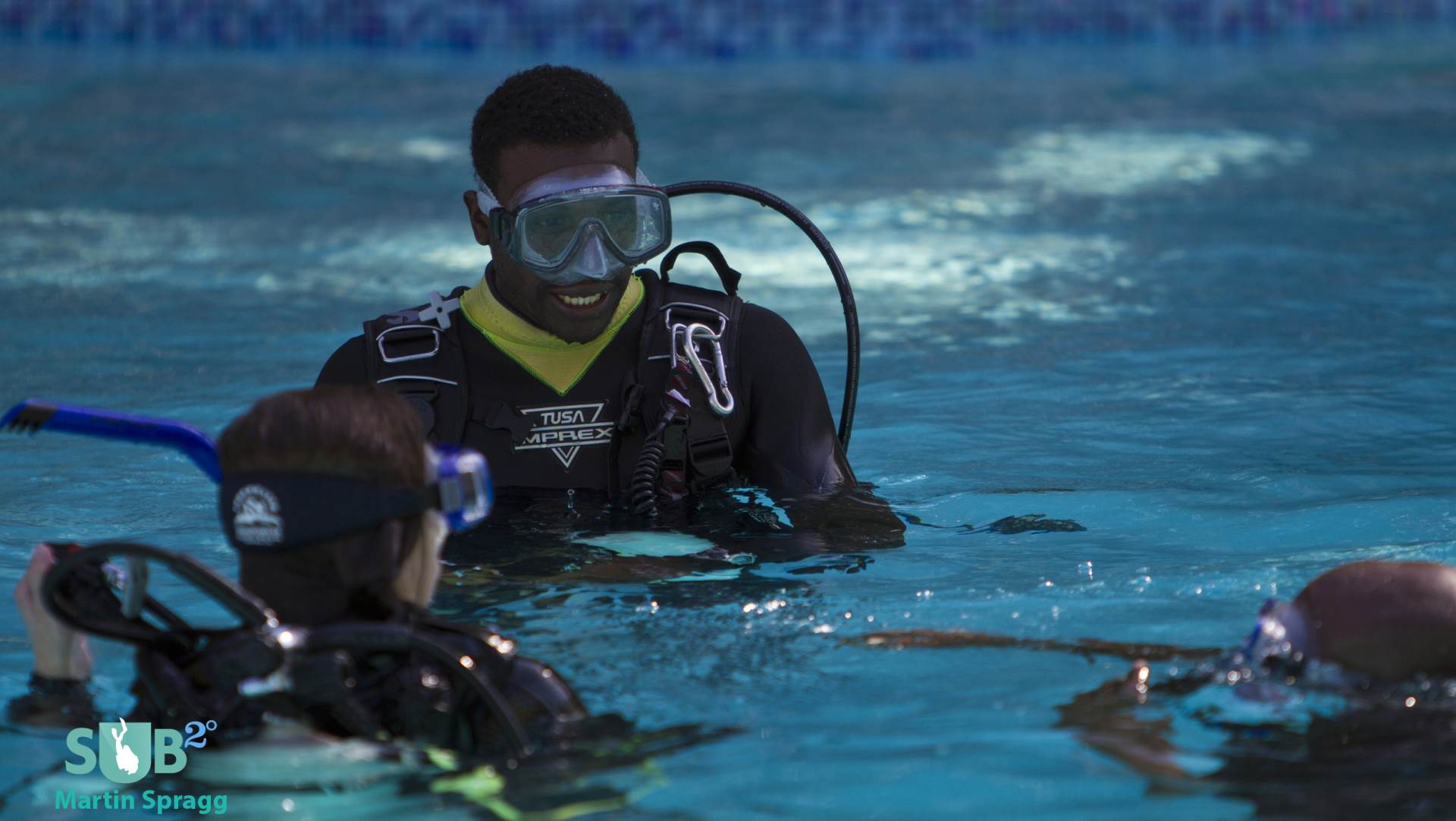
Pool Practice Increases Confidence
Don't let pre-dive nerves get the better of you. With practice and supervision, your confidence will grow and you can succeed! -
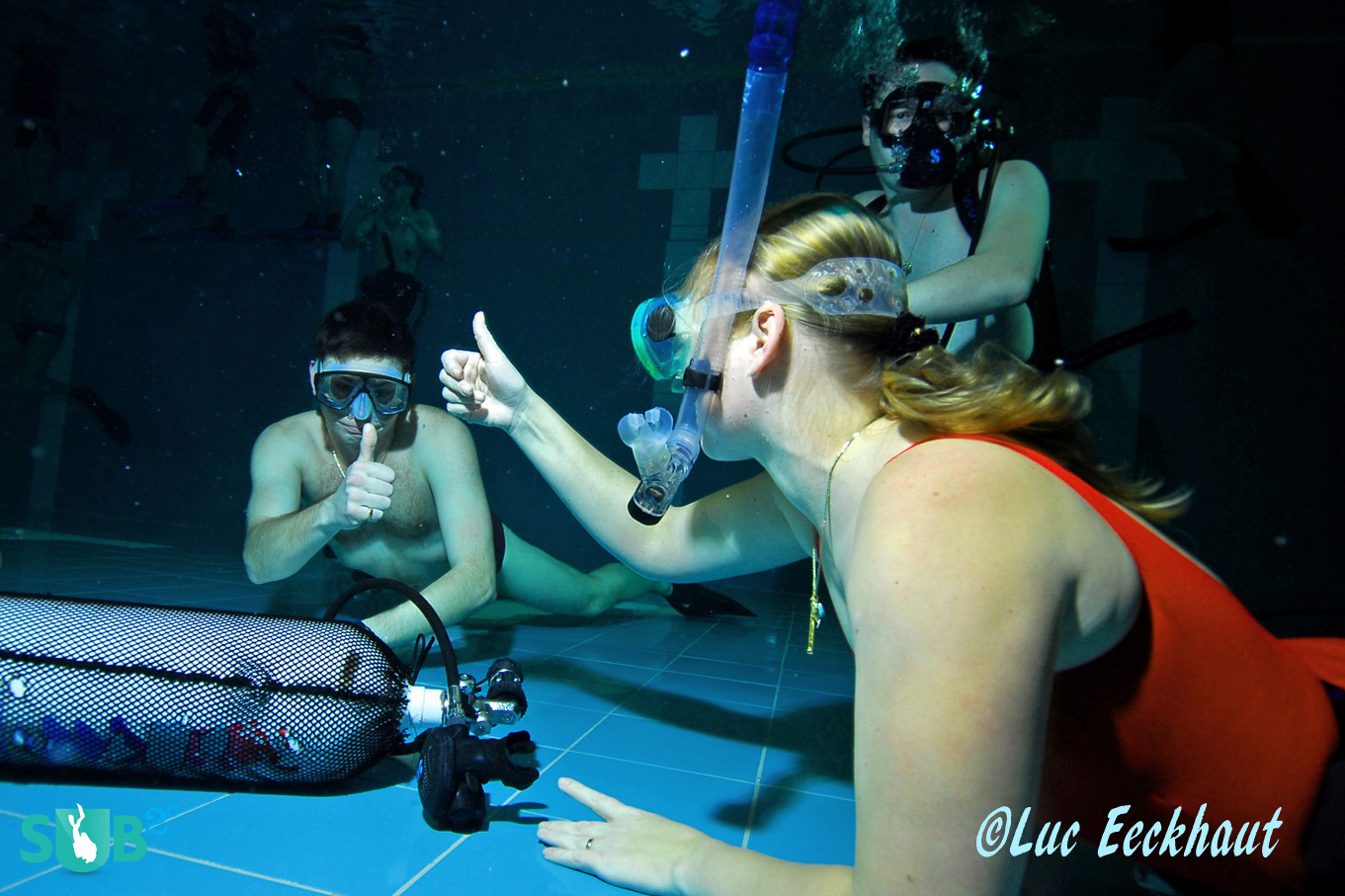
Develop Your Comfort Levels
By taking part in pool training sessions with professionals, you can develop your underwater comfort levels through skill practice and games. -
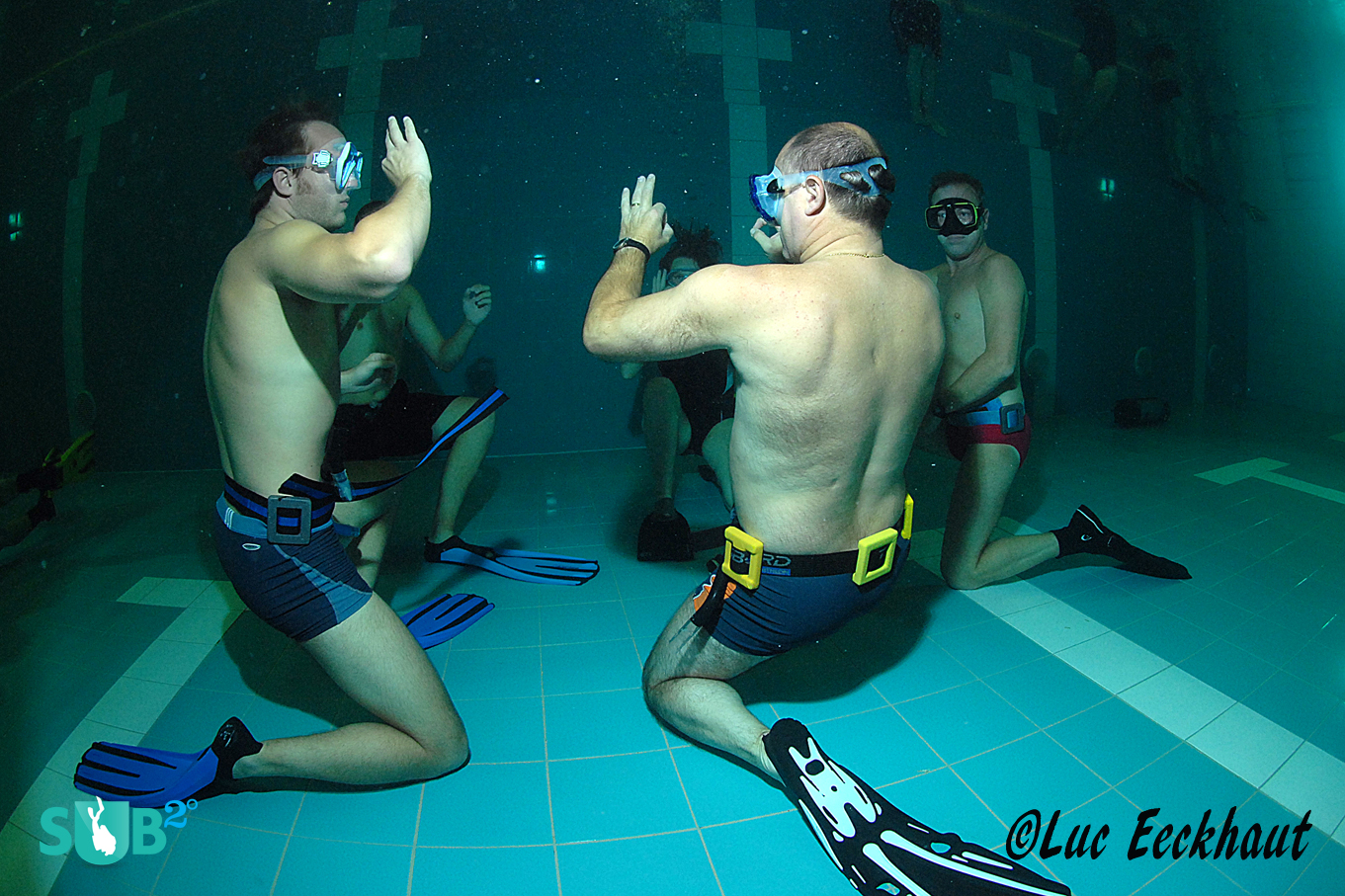
Communication Is Key!
Whether you are above or below the water: communication is key. Always tell your buddy or instructor about your concerns so they can offer guidance and reassurance.
9 Tips to Reduce Pre-dive Nerves
Trainee divers, as well as experienced divers, can experience pre-dive nerves for a variety of reasons. As a PADI Master Instructor, I have been able to coach many divers through personal challenges and achievements. Being able to watch a person's progress, as they develop into a confident, excited scuba diver, is one of the most rewarding parts of being an instructor.
Here are 9 tips to help you overcome pre-dive nerves:
Connect with your Buddy!
Develop a good relationship with your instructor or buddy before entering the water. Tell him/her your concerns and talk through your options.
Scuba diving offers a platform for sharing experiences and continually learning new tips. In my experience, divers are only too happy to assist others and offer encouragement. We all want to have fun and share our passion for the underwater world.
Visualize the Dive
I use this technique in many different situations, from diving to formal presentations. Before the dive, find a quiet area to sit where you are not distracted. Visualization will prepare you by taking you through each step of the dive, from kitting up to exiting the water. Take into consideration what you may expect to encounter on a normal dive and think about solutions in a "what if" situation. You will be much more prepared mentally.
Prepare your Equipment
Give yourself time to set up your equipment in a calm environment. If you have any concerns, talk them through with your instructor or buddy, who can assist you in solving them.
It is always good to practice setting up and using new gear before your book your dive trip. Dive centers offer PADI Scuba Reviews, designed to give you an opportunity to refresh your theoretical and practical skills, with a professional to advise you.
Begin with Simple Dive Plans
There is no need to jump right into the deep end! As a beginner, I planned simple dives with my buddy, under the direction of a reputable dive operator. Talk to your dive guide and ask for suggestions for suitable dive sites within your training level. Once you become comfortable with different techniques and navigation, you can move on to new sites to explore.
You Can Always Opt Out
A good diver knows that you can always say "No" to a dive if you are uncomfortable. You have the final decision... not your buddy, not the dive operator.
Everyone can feel peer pressure, and it can often force divers to do something they are not comfortable with. Remember that there will always be other opportunities to go diving.
Buddy Checks
Buddy Checks are an important step in pre-dive preparation. This is where you can identify any minor issues and solve them easily with the help of your buddy or the dive instructor. Make sure you are familiar with your buddy’s configuration so you can help him/her out too!
Correct Weighting and Buoyancy
Divers commonly perform weight checks on the surface before the dive, to determine that they have the correct amount of weight. If you are worried that you may be underweighted, then ask the dive guide to carry spares or have spare weights available at the end of the dive on a descent line.
It is a mistake to overweigh yourself - this will make you consume air faster and alter your buoyancy and trim when underwater.
Air Consumption
Dive centers often have a selection of different sized air cylinders available. If you know that you consume air at a higher rate than your buddy, you can request a larger cylinder. Although 12 liters is a standard size to use; usually, they can range from 7 to 18 liters.
Practice Breathing Techniques
Start as you mean to go on - give yourself time at the beginning of the dive to become relaxed with slow, deep breathing. Allow yourself to orientate to being underwater by pausing after your descent.
I take a moment to re-check my equipment and computer, and to signal to my buddy that everything is OK. Then I can focus on having fun and discovering the amazing marine life!
Featured Posts
-
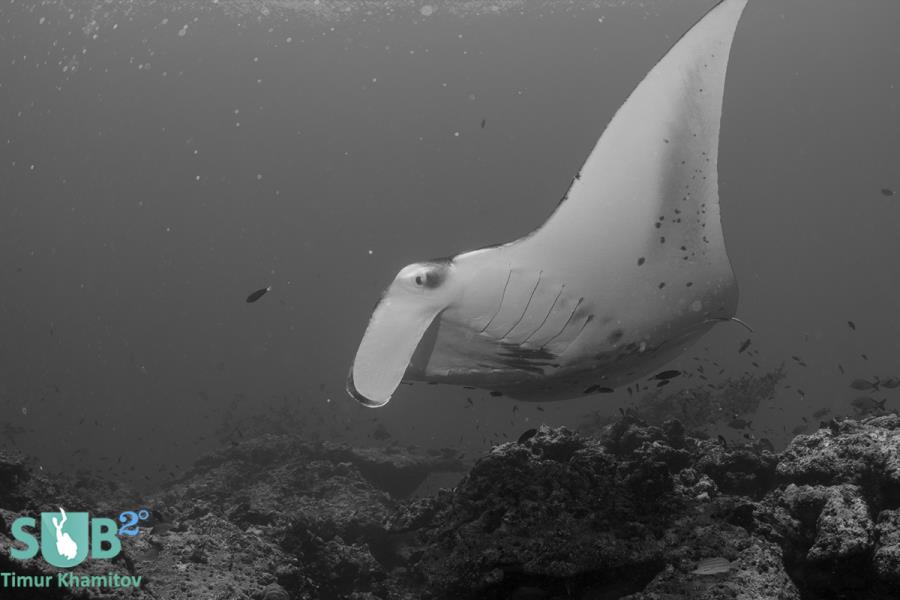
Indonesia Bans Manta Fishing,...
Analyzing manta conservation in the context of marine conservation as a whole. (Part 1 of the series)
-
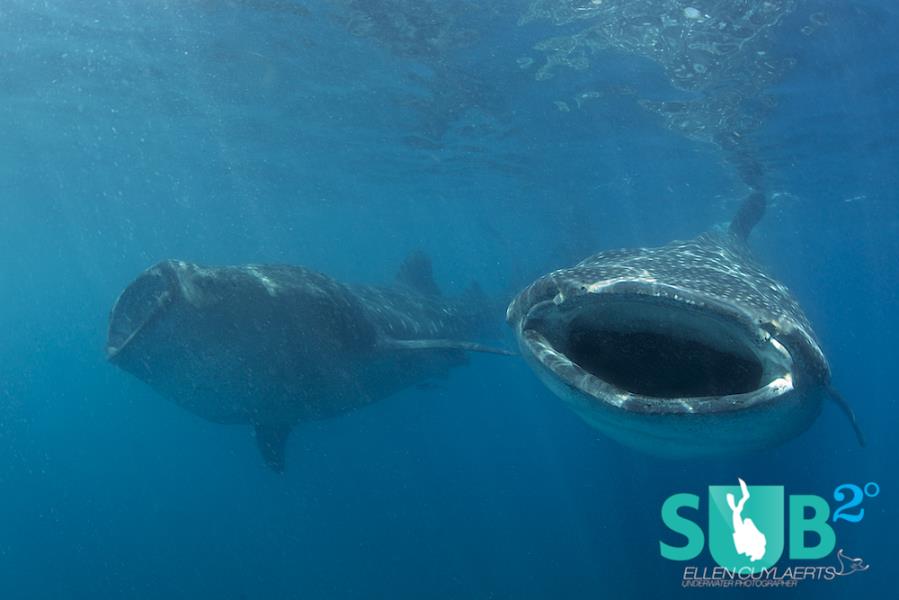
Isla Mujeres & The Whale Shar...
Every year, between June and September, hundreds of whale sharks can be found in the deep waters northeast of Isla Mujeres, Mexico.
-
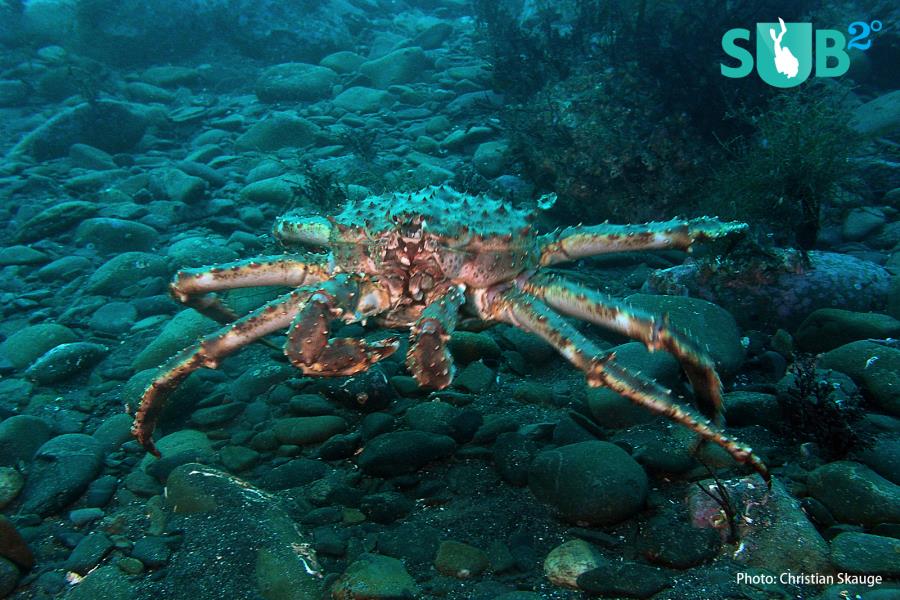
King Crab Invasion
Thanks to Discovery Channel’s popular «Deadliest Catch» TV series, the red king crab has become known across the globe. Native to the north Pacific, this armored behemoth has invaded Norwegian waters and is considered a dang...




Load more comments
Timur K 7/5/2013 2:08:52 PM nice post
Gerardo Alba 7/19/2014 3:50:22 AM Very usefull article... thanks a lot